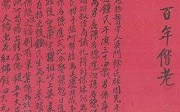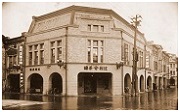
Publication date: 04 Oct 2013 Miyoshi Tokusaburou Papers Project is under the International Collaboration of Taiwan Cultural and Historical Sources Acquisition Project. Through the efforts of our research members Dr. Chung Shu-ming and Dr. Hsu Hsueh-chi and the helps from Prof. Kagotani Naoto, the faculty of Kyoto University, and Prof. Namikata Shouichi, the faculty of Dokkyo University, the Institute of Taiwan History, the Miyoshi family in Kyoto, and the Archives of Uji City ended up reaching an agreement to digitalize Miyoshi Tokusaburou Papers and to store it in the Archives of Institute of Taiwan History (the ITH Archives). Miyoshi Tokusaburou Papers includes personal papers and commercial operating documents. The related catalog is already open on the Taiwan Archival Information System. Among these archives, personal papers, which are 96 in total, include memoirs, personal correspondence, photographs taken in Taiwan, and inventories of personal collections. Commercial operating papers are the documents which were created while Miyoshi Tokusaburou (1875-1939) was running the branch shop of Tsujirihei in Taiwan from 1899 to 1903. There are 49 commercial operating papers in total (Table 1). These papers are important sources for the research into Miyoshi Tokusaburou’s commercial activities and public service in Taiwan. In addition, we can also learn Mr. Miyoshi’s turning point in his life and his special relationship with the government at that time. In other words, these historical documents are invaluable. (see Figure 1)
Table 1
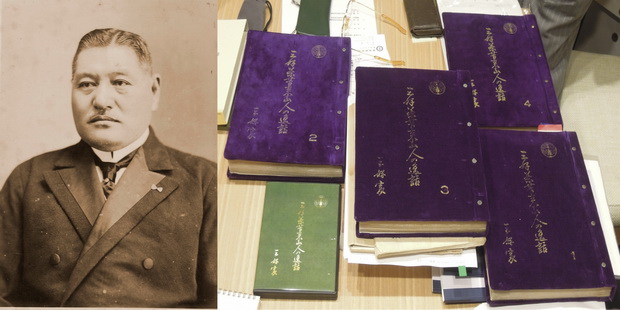 Figure1: The figure on the left-hand side is Miyoshi Tokusaburou’s photo. The picture was taken in 1926 when Miyoshi Tokusaburou was 51 years old. The figure on the right-hand side is the original items of his memoirs.
During the process of collecting documents, we met Mr. Miyoshi Michihiro, the chairman of Gion Tsujiri. He provided the ITH Archives with his grandfather’s manuscripts, photographs and documents. These documents were created while Miyoshi Tokusaburou was conducting business in the Japanese colonial period. However, these old photographs and documents, which were mainly for academic research, unintentionally unfolded the story connecting the present and the past and recalled the memories traveling through time and borders. Miyoshi Tokusaburou was a businessman who came to Taiwan at the beginning of the Japanese colonization. When he arrived in Taiwan in 1899, he began doing research in the Oolong tea in Wenshan and Pinglin, Taipei. In addition, he operated the Tsujiri Tea Shop in Sakaemachi, which was located in the intersection of Chongqing South Road and Hengyang Road and now the place is where Starbucks Chongqing branch locates. Miyoshi Tokusaburou not only sold Oolong tea and black tea but also produced tea on his own. His tea was highly praised by the Imperial House of Japan and earned rewards in many exhibitions. What he has done was a great contribution for the development of tea industry in Taiwan. In addition, Miyoshi Tokusaburou was close to the government at that time and had held the position of chief in the Taipei Post Office. He was also a member of Taipei Sates Conference and a member of Taiwan Government-General Council. Therefore, it is easy to see how big his influence was. That is why Miyoshi Tokusaburou was called the Governor-General among the people. (see Figure 2&3) 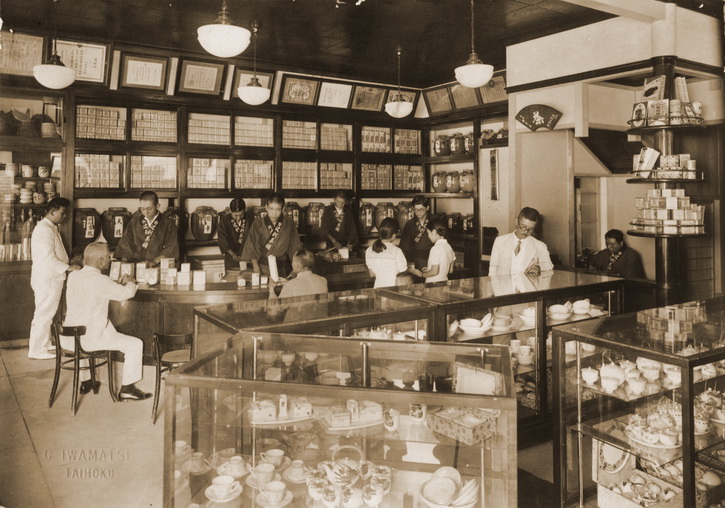 Figure 2: The picture shows the Tsujiri Tea Shop during the Showa period. Most of the staffs were Taiwanese. In this photograph, Miyoshi Tokusaburou’s son, the one who sat on the right hand side in the picture, was greeting guests.
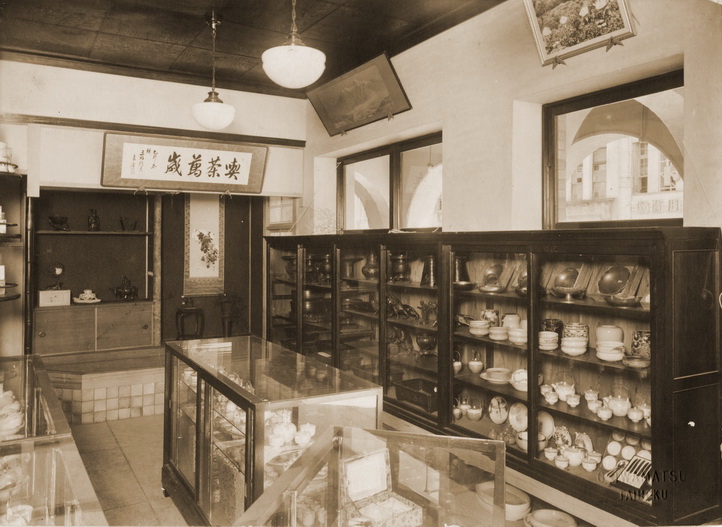 Figure 3: In the shop, tea and tea sets were displayed in cupboards. The plaque with the word “Tea, Cheers!” was hanging on the wall.
Miyoshi Tokusaburou passed away in 1939 ending his 40-year life in Taiwan (1899-1938). The manuscripts and photographs he left are valuable for history research because these papers show his opinions about the political situation and the relationship between businessmen and government officials. In 1946, his offspring went back to Japan and reopened a teashop at Gion, Kyoto, in January 1948. The new teashop followed Miyoshi Tokusaburou’s past experiences of running the Tsujiri Tea Shop in Taipei. Now their tea industry, GionTsujiri, has expanded to the level of a conglomerate with domestic and international channels. Furthermore, their subsidiary SaryoTsujiri is a well-known matcha store in Japan. In the summer of 2012, the ITH staffs first met Mr. Miyoshi Michihiro to negotiate the plan for collecting archives. It was hard to believe that this friendly elder with a warm smile is not only the chief of GionTsujiri Corporation but the fifth successor of Miyoshi family business. He has a huge influence in the tea industry in Kyoto. In fact, what Mr. Miyoshi Michihiro impressed us was his sincere attitude. He unconditionally provided digital images of original items and promised to support subsequent work. However, what surprised us the most was not the precious archives but Mr. Miyoshi Michihiro’s feelings and memories toward Taiwan. Mr. Miyoshi Michihiro was born in Taiwan. He had studied in Asahi Elementary School until he was 12 years old. After that, he went back to Japan with his parents when the WWII was over. At that time, the Miyoshi family surmounted the difficulties to carry all Tokusaburou’s documents back to Japan. For Mr. Miyoshi Michihiro, Taiwan could be his second home, which not only jogs his innermost feelings but also carries his family memories. Several years ago, Mr. Miyoshi Michihiro even visited Taiwan and went to the former site of Tsujiri Tea Shop, where a Starbucks locates now. He also dropped by the 228 Memorial Park and it recalled his childhood memories. (see Figure 4) 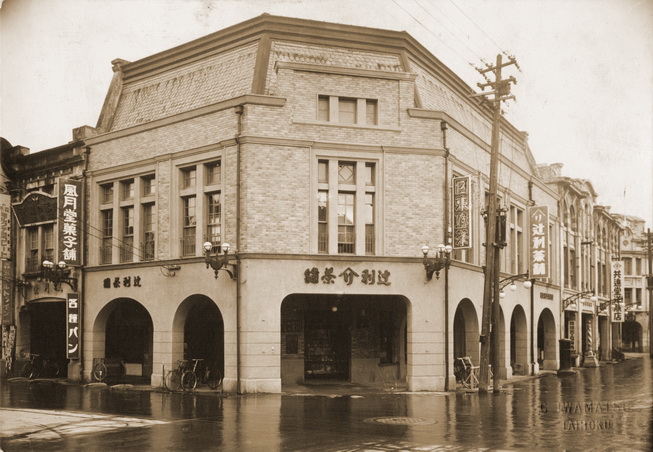  Figure 4: The figure on the left hand side is Tsujiri Tea Shop in the 1930s. Now artistic Starbucks Chongqing branch is located at the same place. From a tea-shop which was established one hundred years ago to a famous coffee shop, the history shared by the antique architectures and the memories belonging to people in Taipei will never change.
When we were looking at Mr. Miyoshi Michihiro’s photographs, which were taken during his journey in search of roots in Taiwan, listening to him singing Taiwanese folk songs, and speaking several words in Taiwanese, we realized that his feelings of Taiwan. In fact, in addition to Mr. Miyoshi Tokusaburou’s stories, there are many stories worth being recorded as well, especially those personal and family archives. The whole process of collecting historical sources shows historians’ passion, offspring’s efforts of storing old documents, and the memories and the feelings among people at that time. |
||||||||||||||||||||||||||||
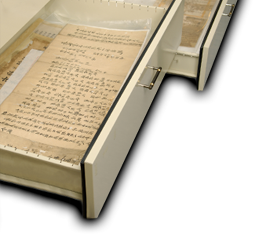 |


